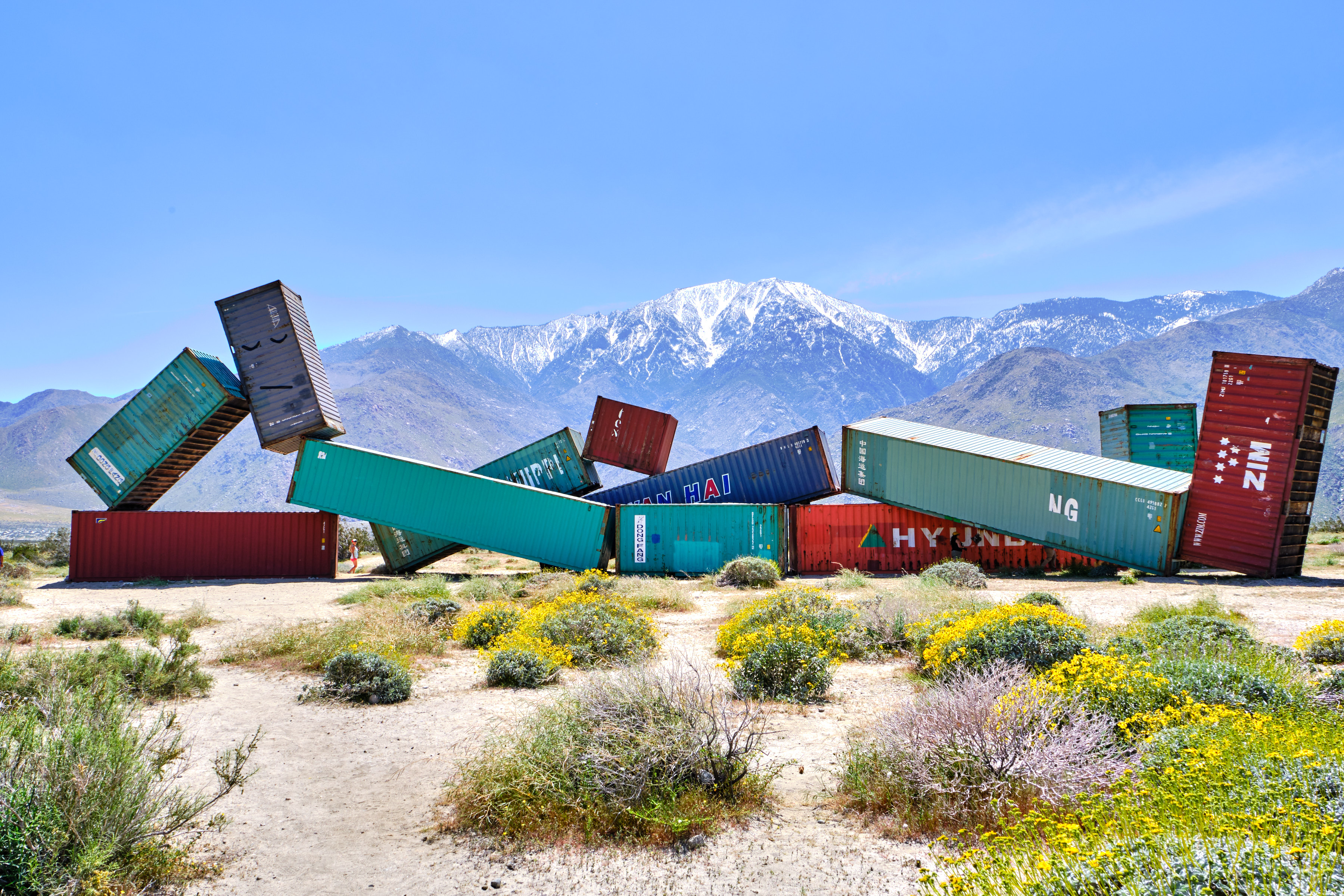Businesses, EU Strengthening International Supply Chains
Over the past three years, global supply chains have experienced problems on an unprecedented scale. Given the rising political tensions and changes in the perception of the role of the economy in international rivalries, a return to international economic relations based on globalisation and trade liberalisation is highly unlikely. Instead, we will witness a necessary strengthening of supply chains, both at the individual business and national levels. For Western economies, the main challenge will be the reduction of related costs.
 Ian L. Sitren/Zuma Press/Forum
Ian L. Sitren/Zuma Press/Forum
Causes of Disruption in Supply Chains
In recent decades, the dominant business strategy had been establishing “lean” supply chains based on minimal inventory, “just-in-time” deliveries, little diversification of the supplier base, and seeking lowest prices of supplies, even to the detriment of stability. This approach stemmed from the belief that globalisation and trade liberalisation were irreversible and that after the end of the Cold War and China’s accession to the WTO, the impact of political risks of a loss of access to goods and raw materials lost significance. This picture began to change as tensions rose between the U.S. and China during the Trump administration. The COVID-19 pandemic, lockdowns, and logistical difficulties caused unprecedented disruptions in supply chains and losses to the economies of developed and developing countries alike. These issues were exacerbated by Russia’s aggression against Ukraine and disturbances in trade with these countries as a result of sanctions or objective logistical difficulties, as well as rising inflation in developed countries, which hindered production planning. Political risks (especially related to tensions between China and Russia and the West), cybercrime, developments in industrial processes and the rising use of offshoring (moving production abroad, which stretches supply chains) by Chinese companies will further increase uncertainty. As a result, more robust supply chains will be necessary to avoid downtime and ensure stable prices of production inputs at the enterprise level while protecting the functioning of critical sectors and supply of vital goods at the national level.
Strategies for Strengthening International Supply Chains
Interest in strengthening supply chains in the business community is now greater than after previous crises. Various strategies are being employed. Businesses can choose to increase their stock levels to allow them to continue production despite interruptions of supplies. The downsides of this solution are the higher costs of maintaining warehouse space and loss of opportunity to invest capital frozen in stored goods. Supply chains can also be strengthened by diversifying the supplier base or building new in-house facilities allowing production to continue in the event of a single source interruption. However, this leads to an increase in the variety of production inputs, a need to buy some of them at a sub-optimal price (if only one of the suppliers is the cheapest, purchases from others must be more expensive) and greater difficulties in organising the procurement or production processes. Enterprises may also want to have their own or their suppliers’ plants located in countries that are politically friendly (friendshoring) or geographically close (nearshoring). A strategy that combines diversification of the supplier base and friendshoring is used by Apple, which is developing its manufacturing capacities in India. However, these solutions are also associated with higher costs, as products from countries that are friendly or geographically closer are not always the cheapest. The most reliable, but also the most expensive strategy, is reshoring, or moving production from countries with lower labour costs (e.g., China) back home. Reshoring offers the best (though not absolute) protection against political and logistical risks and allows for better control of the supply chain. Even despite advances in automation, production in developed countries remains expensive, so the reshoring potential is mainly in industries with the greatest added value, for example in chipmaking—Intel is building a factory in Ohio in the U.S.—or active pharmaceutical ingredients, produced in Europe by EUROAPI, a spinoff company of the French Sanofi. Companies might also attempt to increase control over the entire production process to better respond to problems in supply chains. For example, the rising price of lithium, necessary for electric car batteries, enticed Stellantis, the owner of, among others, Opel and Peugeot, to invest in the Australian-German company Vulcan Energy Resources, which plans to develop operations in Germany to ensure a stable and cost-effective supply of the material.
Public Intervention
After the outbreak of the COVID-19 pandemic, governments tried to secure crucial goods, especially medical supplies and personal protective equipment (masks, visors, gloves). This experience showed that relying solely on imports is a risky strategy. The U.S. is currently conducting supply chain risk assessments, especially in the priority areas of semiconductors, batteries, critical raw materials, and pharmaceuticals and their active ingredients. Increasing domestic production, maintaining stocks of production inputs, and boosting redundant production capacity, as well as diversifying the supplier base were explicitly listed in the Executive Order on America’s Supply Chains. The CHIPS Act (adopted in 2022) provides for financial incentives of about $52 billion to develop domestic chip production. Also, elements of the Inflation Reduction Act are intended to stimulate the production of batteries for electric cars and extraction of essential minerals in the U.S.
The EU is working on the EU Chips Act, which would secure its independence in the production of semiconductors and chips by funding research and allowing Member States to disburse state aid for this purpose. The total value of the subsidies might be as much as €43 billion. Strengthening supply chains and increasing industrial capacities in the context of climate neutrality goals are also objectives of The Green Deal Industrial Plan, presented in February 2023. Work is underway on the Critical Raw Materials Act, aiming to strengthen the EU’s refining, processing, and recycling capacities and supporting the diversification of companies’ supply chains. The EU also plans to introduce a Single Market Emergency Instrument to protect the single market and intra-Community supply chains.
Resilience of supply chains and support for modern technologies are elements of Japan’s economic security policy. Also, China aims to isolate its domestic market from shocks in the global economy through its “double circulation” strategy, which focuses on production for the internal market, supplemented and isolated from production for export.
Conclusions and Perspectives
The available methods of strengthening supply chains do not match the short-term market logic of reducing costs as far as possible, so public subsidies might need to be introduced. These would serve to encourage companies to pursue the strategies discussed above and should help to reduce inflationary pressure. With or without state aid, businesses will probably opt for strategies that generate the lowest costs, in this case, friendshoring, the diversification of the supplier base, or increasing stocks. Reshoring on a broad scale is unlikely and will probably only be used in sectors which have the highest added value and critical sectors. Attempts to relocate production to a company’s own country may also lead to a revival of economic nationalism, which already has been a subject of a dispute between the U.S. and its European partners.
Poland should consider increasing competences in the field of supply-chain monitoring. It is advisable to identify key dependencies and work to eliminate them, including through government actions. It is also worth observing the opportunities arising from friendshoring—Poland is a member of the EU single market and has the industrial potential to encourage U.S. and EU companies to transfer part of their production to the country. The success of such a strategy will depend on convincing investors that Poland’s security situation is good and conditions for doing business (friendly administrative procedures, qualified workforce, and adequate energy supplies, especially in the perspective of switching to renewable sources) are adequate. It will also remain important to draw attention to past successes, such as the investments of Korean LG and SK Nexilis in the sector of electric car batteries.


